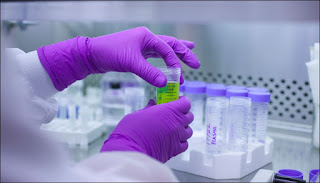FIRST TIME HUMAN EGG CELLS GROWN IN LABORATORY - A BOON FOR INFERTILITY
PROF .DRRAM,HIV /AIDS,HEPATITIS ,SEX DISEASES & WEAKNESS expert,New Delhi,India, profdrram@gmail.com,+917838059592,+919832025033,ON WHATSAPP
Human egg from primitive stage to amatury till it can be freezed cant be grown in laboratory ,as presence of an active in vivo Ovary is must but in patients undergoing chemo or radio therapy for ovarian cancer want that their eggs are not damaged by therapy and by saving their eggs they can be mother again by preserving it in lab and getting fertilised by sperm later when their disease or cancer is cured.Same way patients undergoing infertility treatment where egg maturity is questionable ,such eggs can be matured in laboratory too for fertility.
 In a massive breakthrough that paves the way for advancement in fertility treatments, scientists have grown human egg cells to full maturity in the lab.The announcement was made in a study which stated that a new method to grow eggs from very early stage egg cells obtained from ovary tissue was developed by researchers in New York and Edinburgh and were grown to the point at which they could be fertilized.
In a massive breakthrough that paves the way for advancement in fertility treatments, scientists have grown human egg cells to full maturity in the lab.The announcement was made in a study which stated that a new method to grow eggs from very early stage egg cells obtained from ovary tissue was developed by researchers in New York and Edinburgh and were grown to the point at which they could be fertilized.
This had previously been achieved with mouse egg cells, while human eggs had been successfully cultivated starting from a much later stage of development."The latest study is the first time a human egg has been developed in the lab from its earliest stage to full maturity," said a statement from the University of Edinburgh.
Traditionally, cancer patients can have a piece of the ovary removed before chemotherapy, but reimplanting the tissue later may risk reintroducing cancer."This is an elegant piece of work, demonstrating for the first time that human eggs can be grown to maturity in a laboratory," Channa Jayasena of the Imperial College London said in a comment on the study results."It would take several years to translate this into a therapy. However, this is an important breakthrough, which could offer hope to women with infertility in the future."
"We also hope to find out, subject to regulatory approval, whether they can be fertilized," she said.The study was published in the journal Molecular Human Reproduction
- Kidney stones universally present hazard in north india,dillution by water prevent it
- Steroid and placebo effect equally for mild persisting asthma with low sputum eosinophils
- Government wants to fix public healthcare staff shortages with ayush docs: will it work?
- Plea in hc for payment of salaries of edmc, north mcd teachers and doctors
- 7 indian pharma companies named in us lawsuit over inflating generic drug prices
- Woman in up dies after explosion in her mouth during treatment,what is diagnosis?
- Woman in up dies after explosion in her mouth during treatment,what is diagnosis?
- Woman in up dies after explosion in her mouth during treatment,what is diagnosis?
- Air pollution ! mothers organising rally in london,anaesthetist choosing gas,will india follow?
- Cardiac arrest is always not sudden as understood -a study

 Comments (
Comments ( Category (
Category ( Views (
Views (